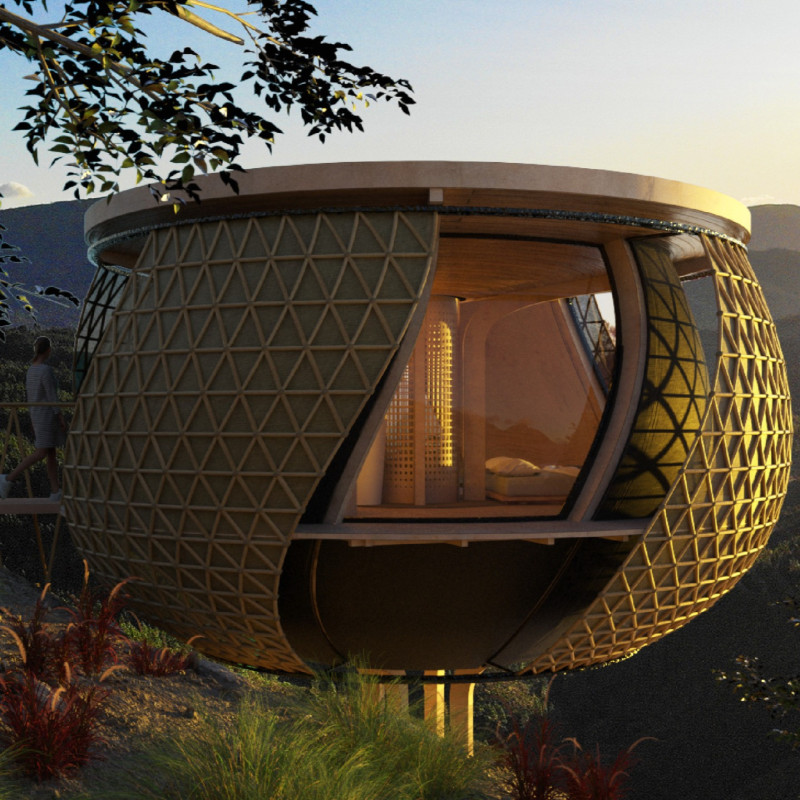5 key facts about this project
The Vale de Moses Yoga Retreat is located in Oleiros county, Portugal, and is designed to connect with its natural surroundings while promoting wellness and reflection. Inspired by the Lotus flower, which symbolizes spiritual growth, the retreat emphasizes harmony between its users and the environment. The design seeks to create a peaceful atmosphere suitable for relaxation and meditation.
Design Concept
The key feature of the retreat is the Lotus Pod. This structure represents a modern take on the Lotus flower, capturing the essence of yoga. Inspired by the Lotus seed, the design includes a zen garden within each pod. This integration creates a spiritual link between the occupants and their outdoor surroundings, reinforcing the retreat's purpose.
Structure and Functionality
The outer shell of the Lotus Pod includes eight "petals," which function as adjustable bamboo panels. These panels allow users to control aspects such as light and privacy. This flexibility enhances the individual experience, allowing each person to adapt the space to their needs, aligning with the principles found in yoga practice.
Material Selection
Materials are chosen with care, with Shou Sugi Ban, or carbonized wood, used for the exterior surfaces. This choice increases durability while providing a visual contrast with the lighter reclaimed wood used for the interiors. These selections combine aesthetic appeal and functionality, contributing to the retreat's overall identity.
Sustainability Practices
Sustainability is a key concern in the design, with systems for rainwater harvesting in place to reduce water consumption. The sewage system employs a septic tank, returning purified water to the local environment. These practices emphasize the commitment to environmental responsibility woven into the retreat’s design philosophy.
The operable bamboo panels mimic the petals of the Lotus flower, inviting natural light into the space while ensuring privacy. This thoughtful design enhances the user experience while fostering a deep connection with nature, allowing for moments of quiet reflection and inner peace.





















































